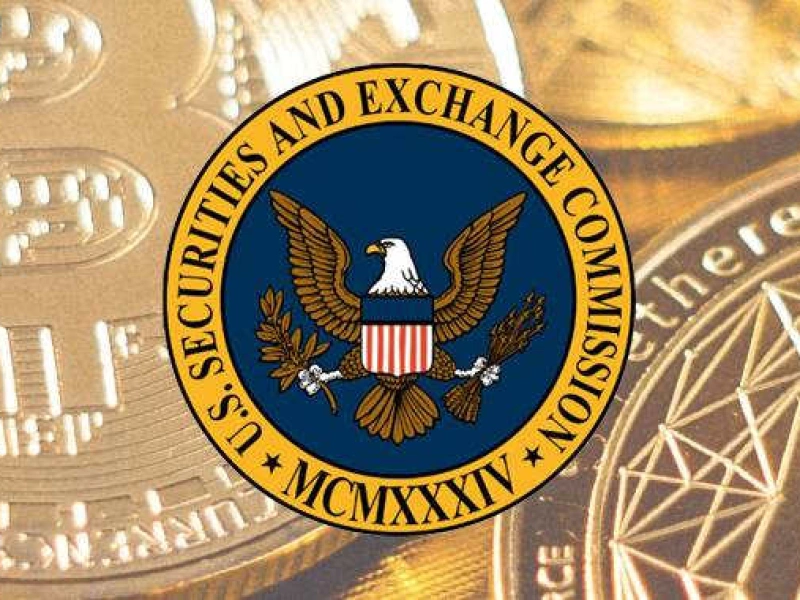How U.S. regulators’ lawsuits affect cryptocurrency projects and their tokens Cryptocurrency projects change their strategies around development and their own tokens under pressure from U.S. regulators The U.S. remains a key market for major blockchain services, but strict regulation of their tokens is forcing them to find new ways to position their assets and developments
John Reed Stark, a former SEC lawyer who spent 15 years at the agency, suggested that the U.S. Department of Justice has or will file “classified” money laundering charges against Binance, the world’s largest cryptocurrency exchange. Back in April, he predicted “repercussions of epic proportions” against crypto-business leaders, anticipating more lawsuits and investigations into their activities.
In June, the SEC filed charges against both Binance and Coinbase, which is the world’s second-largest crypto exchange by trading volume and the largest in the U.S. Earlier this year, the agency also sued Gemini, a U.S. cryptocurrency exchange, over its Earn program, which allowed users of the site to earn interest from lending their tokens. The SEC then fined Kraken $30 million, equating its staking service to making money from unregistered securities. The agency later banned Paxos from issuing the BUSD token, which at the time was considered the official stablecoin of the Binance exchange and was second only to USDT from Tether and USDC from Circle in terms of capitalization.
The agency’s allegations against one way or another concern violations of securities laws and the recognition as such of coins and tokens that cryptocurrency services issue and use in their economy. In lawsuits against Binance and Coinbase, the agency recognizes 19 crypto-assets as securities, the most capitalized of which are Cardano (ADA), Polygon (MATIC), and Solana (SOL).
Last week, the Robinhood platform said it would remove all three tokens from its list of available cryptocurrency assets for trading as early as the end of the month. Robinhood allows you to trade stocks and other financial products, including cryptocurrencies, through an accessible smartphone app. The service has gained popularity amid a boom in retail investing. About 10 million people traded cryptocurrencies through the app during the growth period of 2021.
On the night of June 12, the exchange rate of all three coins dropped more than 20%. Later, the popular brokerage site eToro announced that it would limit Americans’ access to its services after SEC lawsuits were filed against cryptocurrency exchanges Binance and Coinbase. Users of the service based in the U.S. will not be able to open new positions in several cryptocurrencies, a list that also includes the MATIC token.
“Un-American Story.” MATIC is a Polygon blockchain token behind which is the American company Polygon Labs with an investment of more than $450 million and a valuation of $20 billion. The market capitalization of the token even after a strong price drop exceeds $6 billion, and the asset itself is in the top ten of CoinMarketCap.
“Un-American Story” MATIC is a Polygon blockchain token behind which is the American company Polygon Labs with an investment of more than $450 million and a valuation of $20 billion. The market capitalization of the token even after a strong price drop exceeds $6 billion, and the asset itself is in the top ten of CoinMarketCap. Polygon solutions are used by major brands, among which are Adobe, Starbucks, Mastercard, Reddit or Russian “VKontakte”.
Facing the growing consequences of the notorious lawsuits of U.S. regulators, Polygon Labs introduced the concept of a package of updates to the Polygon 2.0 network, among which the emphasis is on “utility and evolution of the native token”. Interestingly, two days before the announcement, the company posted a statement on Twitter (the social network is blocked in Russia) where it openly emphasized its orientation to the market outside the U.S.
“We are proud of the history of the Polygon network - developed outside the U.S., deployed outside the U.S. and to this day oriented to the global community that supports this network. MATIC has been an essential part of Polygon technology from day one, providing network security,” wrote representatives of the company, adding that “the market outside the U.S. is the largest in the world.”
In April 2019, when the project was called Matic Network before rebranding to Polygon, the team held a token sale in ICO format, raising $5.6 million. Then followed several investment rounds, culminating in a private token sale for $450 million. The financing of the company involved American investors and such firms as Galaxy Digital or Seven Seven Six by Alexis Ohanian. Polygon claims that although they always intended to “make MATIC available to a wide range of people”, fundraising “was never targeted at the U.S.”
Community and management In the announcement of the new network from Polygon Labs also emphasize that the initiative belongs to the global community of token holders and developers interested in the development of the project. “Only the community that controls the Polygon protocol has the right to adopt and implement Polygon 2.0 decisions,” stated in the publication. However, Polygon Labs as the main developer of the protocol obviously has a significant influence on the project, so the ability of “the community” to manage network development is somewhat limited.
According to SEC Chairman Gary Gensler, often projects in the field of decentralized finance (DeFi) are technically not too decentralized, and their developers make profits just like in traditional business. At some stage there is always management or developers, and sometimes investors who can be held accountable on behalf of the project.
“The core teams of developers at Uniswap, Open Sea, Alchemy, and many other major Web3 projects are still based in the U.S.,” wrote co-founder of decentralized crypto exchange dYdX Antonio Juliani. His service operates on smart contracts, which does not imply the participation of a centralized intermediary, but behind its development and support is an American company dYdX Trading, which employs about 50 people.
According to Juliani, in the U.S. there is a very correct approach to technology, and all that regulators need to do in terms of regulating the Web3 sphere is “at least treat it reasonably.”
- Elliptic reported the transfer of stolen Atomic Wallet funds to Garantex.
- Hackers stole $35 million from Atomic Wallet users.
- U.S. DOJ accuses two Russians of hacking Japanese crypto exchange Mt. Gox
- Robinhood will delist three cryptocurrencies due to SEC actions
- SEC head compared the crypto community to the "hustlers and con artists" of the 1920s
- Zero Knowledge. How ZK technology created a billion-dollar niche in the crypto market
- Investment idea: What to buy in the current market conditions
- SEC head compared the crypto community to the "hustlers and con artists" of the 1920s






